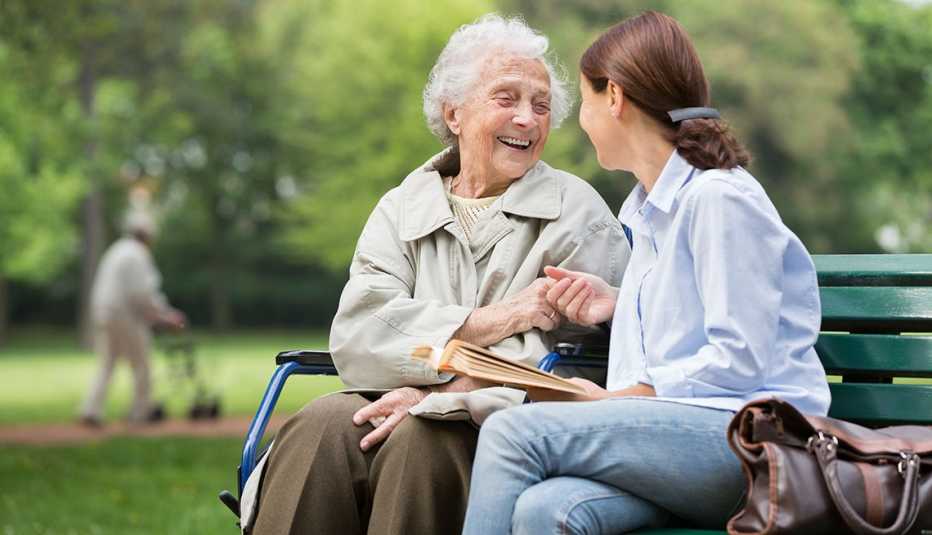AARP Hearing Center
About three-quarters of adults 50 or older say they prefer to stay in their homes and communities for as long as possible, according to AARP’s Home and Community Preferences Survey. When a higher level of care is required, however, many of these aging adults move in with their adult children (or vice versa) to get the care they need.
If grandchildren are part of the picture, there are ways to get kids involved with caregiving at home, and teenagers can be especially helpful. Here are some ways to involve your teens with caregiving while still respecting their needs.
Driving
Teens who have a license and access to a car can be tremendously helpful as drivers. Although an adult may need to accompany grandparents to medical appointments, teens can free up their parents by running other errands such as picking up groceries, prescriptions or restaurant takeout.
Maribel Jimenez, a hairdresser in Milwaukee, moved her family in with her mother two years ago, when her mother’s dementia made it unsafe for her to live alone. Jimenez has her 17-year-old daughter help drive younger siblings (ages 9 and 15) to and from school, dance and soccer classes. Jimenez explains how essential her daughter has been since she got her license last year: “I’ve had to pick up so many extra hours at work, and I’m the only one that can take my mom to her appointments, so I need my daughter to help with the driving.”
Cooking
Teenagers can be helpful in the kitchen by preparing simple meals for themselves, their siblings and their grandparents. Jimenez says that when she works nights, both of her teens take over, fixing quick dinners such as spaghetti, scrambled eggs, instant rice and grilled cheese for their grandmother and younger brother.
A tween who isn’t comfortable using the stove solo can still help by making sandwiches, cereal, smoothies and yogurt parfaits, or microwaving soup and frozen dinners. If grandparents are able to make their own sandwiches or pour their own cereal but have difficulty moving around the kitchen, grandchildren can bring the ingredients to the table, which minimizes the child’s work while helping to maintain the grandparent’s independence.







































































